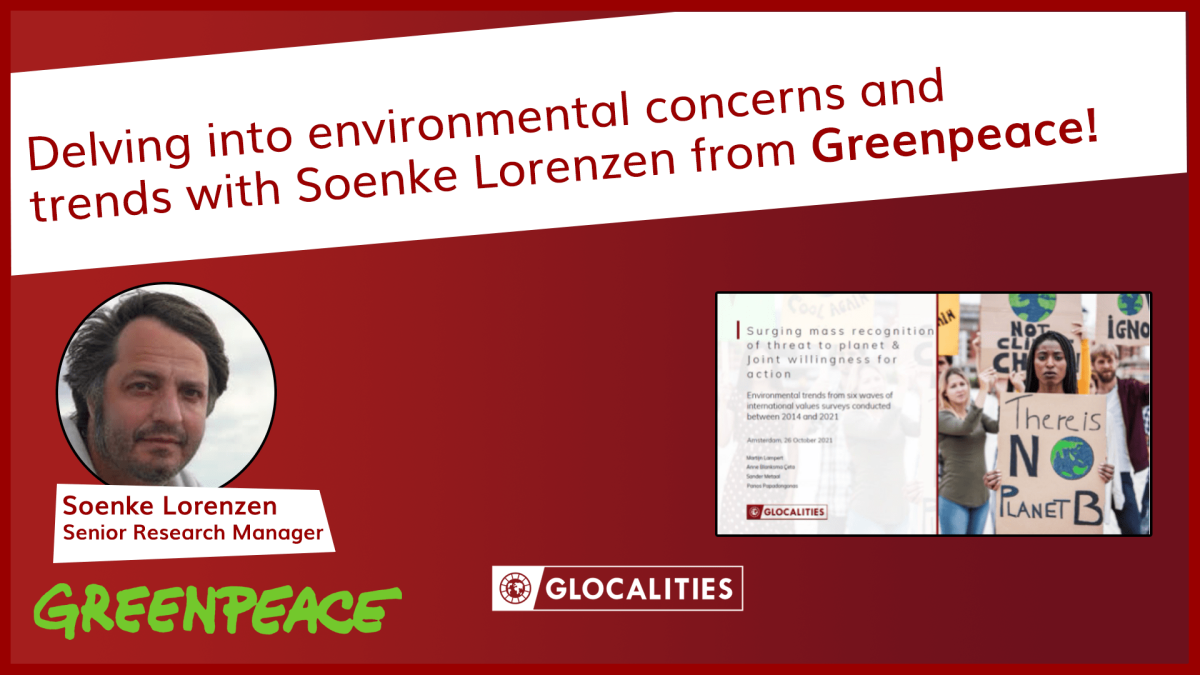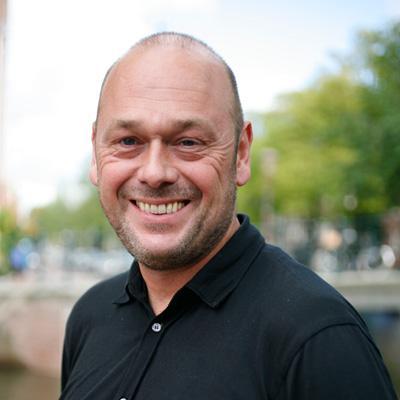Delving into environmental concerns and trends with Soenke Lorenzen from Greenpeace

Following the release of our environmental trends report, we interviewed Soenke Lorenzen, Senior Research Manager at Greenpeace, and long-term client of Glocalities. Soenke has been working at Greenpeace for more than 15 years, dealing on a daily basis with climate and environmental topics.
In our trends report, we see that concerns about the environment have been going up steadily in different parts of the world, especially among young people. In our conversation with Soenke, we discussed these findings and compared them to his front-line experience.
AG: You’ve been working at Greenpeace for more than 15 years. Have you noticed a change of mindset when it comes to the topic of climate during your career?
SL: In general, I would say it depends a lot on how the media conveys the issue. Media represents the main channel through which our supporters get most of the information, therefore it has an impact on the way people talk and think about climate. In the last years, direct communication has accelerated the way people get information. People are receiving information especially via social media platforms or direct messaging. However, this has increased the polarisation between audiences, which I would say is the most prominent change. This makes it more difficult for us to reach out to people that now belong to different sides of the polarisation.
AG: From what you are saying, it seems that now there is more awareness about the word “climate”?
SL: Yes. With Fridays for Future, Extinction Rebellion, but also Greenpeace, we can see that the wording has become harsher than in the past and the actions are stronger). It’s got to a point where we’re almost using apocalyptic jargon when we talk about climate, but we’re probably doing so for the right reason!
AG: What role can research agencies play in supporting climate and environmental issues?
SL: Surveys can help create pressure on decision makers but also create a sense of advocacy for people to be more sustainable in their everyday behaviours. If respondents see that more people report behaving in a certain way, they might want to behave that way as well.
Moreover, I think that integrating different approaches from research would be interesting. I think Glocalities has been doing a good job with it. Often, the pitfall of surveys is that they portray people’s attitudes, but we don’t know what people are actually doing about it. To overcome this, in the latest study we did with Glocalities, we tried to contrast attitudes and self-reported behaviour: we’ve asked people which practical actions, both related to a sustainable lifestyle and civic action, they take in their day-to-day life. The results are quite interesting! I think it would be good to see more type of studies like these.
Integrating different instruments is also useful. For instance, I have been working a lot with the Schwarz values, which are part of the Glocalities database. These are psychological values, which are helpful because they help to bridge the gap between what people say and what they actually do or consider doing. This type of work is very helpful, especially for NGOs.
AG: When you create campaigns, do you target specific audiences?
SL: I think we need to create different narratives for different population segments, especially around lifestyles. It is always important to keep in mind the distinction between values and the lifestyle of different audiences. For instance, there might be a group of people that care about nature but within the group, lifestyles might be very different. Somebody might be very conservative and somebody else more liberal, so the way they care about nature is also different. To build successful campaigns it’s important to take these differences into consideration.
AG: Finally, in our report, we see that young people tend to be more involved in the topic of climate. Do you also see the same?
SL: We can’t generalise across countries, but I know that for instance in Germany the appreciation for nature has been going down, although now the involvement of young people has become more visible thanks to the demonstration and Fridays for Future. For me the most important thing is to create a segmentation based on values and lifestyle rather than on generations. The key is to take into consideration also the local cultures, this is what I like about Glocalities: they integrate values with information about lifestyle and do not overlook the cultural differences.
Curious to know more about our work for Greenpeace? Get in touch with us!
To learn more about our trend report, click here.

Roel Schoemaker
Principal Strategy Consultant

